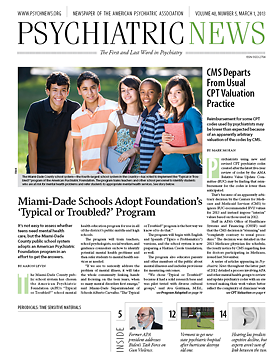Lower Recommended Dosages For Zolpidem Required
The Food and Drug Administration (FDA) announced January 10 that it is requiring the manufacturers of Ambien, Ambien CR, Edluar, and Zolpimist, widely used sleep drugs that contain the active ingredient zolpidem, to lower current recommended dosages. New data show that zolpidem blood levels in some patients may be high enough the morning after use to impair activities that require alertness, including driving.
Using lower dosages of zolpidem means less of the drug will remain in the blood in the morning. Since women eliminate zolpidem from their bodies more slowly than men do, the FDA informed manufacturers that the recommended dosage of zolpidem for women should be lowered from 10 mg to 5 mg for immediate-release products (Ambien, Edluar, and Zolpimist) and from 12.5 mg to 6.25 mg for extended-release products (Ambien CR). For men, the FDA informed manufacturers that the labeling should recommend that health care professionals consider prescribing the same lowered dosages. Data show the risk for next-morning impairment is highest for patients taking the extended-release forms of these drugs. The FDA urged health care professionals to caution all patients who use these products about the risks of next-morning impairment for activities that require complete mental alertness.
FDA Approves Adasuve as Agitation Treatment
Alexza Pharmaceuticals announced December 21, 2012, receipt of FDA approval of Adasuve (loxapine) inhalation powder (10 mg) for the acute treatment of agitation associated with schizophrenia or bipolar I disorder in adults. Adasuve uses Alexza’s proprietary Staccato delivery system, a hand-held inhaler that delivers a drug aerosol to the deep lung and results in rapid systemic delivery and absorption of a drug.
The FDA approval is based on a clinical data package involving more than 1,600 patients and subjects. In two phase 3 trials, Adasuve was found to be effective in the acute treatment of agitation in adults with schizophrenia or bipolar I disorder by meeting the primary efficacy endpoint, with statistically significant reductions in agitation when compared with placebo at the two-hour postdose time point. Adasuve exhibited rapid effects in agitated patients, with statistically significant reductions in agitation apparent starting at 10 minutes after administration of a dose versus placebo.
Alexza did identify a risk of bronchospasm in certain asthma and chronic obstructive pulmonary disease patients following dosing with Adasuve. The company notes that Adasuve can cause bronchospasm that has the potential to lead to respiratory distress and respiratory arrest, and it will be available only through a restricted program under a Risk Evaluation and Mitigation Strategy.
Ondansetron Does Not Alleviate OCD Symptoms
On December 21, 2012, Transcept Pharmaceuticals announced initial results from its phase 2 clinical trial evaluating the efficacy and safety of TO-2061 (ondansetron oral tablets 0.5 mg and 0.75 mg) as an adjunctive treatment in patients with obsessive-compulsive disorder (OCD) who had not adequately responded to treatment with approved first-line therapies.
Patients with a documented history of at least six weeks of inadequate response to an approved OCD medication continued to receive that first-line OCD medication during an additional six-week run-in phase of the study, a double-blind, placebo-controlled trial. The data from the trial showed that TO-2061 did not meet the primary efficacy endpoint, which was to demonstrate improvement in OCD symptoms compared with placebo. The primary endpoint of the study was the difference between active and placebo treatment arms in the change from baseline as measured by the Yale-Brown Obsessive-Compulsive Scale. Transcept expects to complete the remaining protocol-specified analyses early this year and will make a determination on any future development of TO-2061 after further review of the data.
Tasimelteon Fails To Improve MDD Patients
Vanda Pharmaceuticals announced January 31 the results of the phase 2b/3 clinical study (MAGELLAN) in major depressive disorder (MDD), investigating the efficacy and safety of the melatonin receptor agonist tasimelteon as a monotherapy in the treatment of patients with MDD.
The study did not meet the primary endpoint of change from baseline on the Hamilton Rating Scale for Depression (HAMD-17) after eight weeks of treatment when compared with patients taking placebo. Both tasimelteon- and placebo-treated patients had an approximately 40 percent reduction of their MDD symptoms from baseline. Tasimelteon was shown to be safe and well tolerated, consistent with observations in prior studies. Given these clinical study results, Vanda has decided to discontinue activities related to studies for the drug in MDD.
Vanda recently reported positive results in two phase 3 clinical studies of tasimelteon in blind individuals with non-24-hour sleep-wake disorder and plans to submit a New Drug Application for that indication to the FDA in 2013. ■
